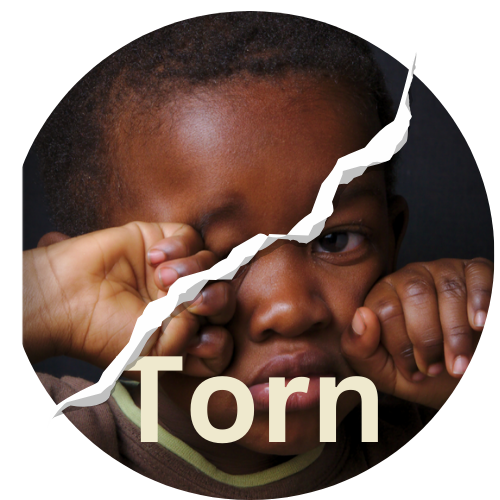When families are involved with the child welfare system, one of the most urgent questions is: Where will the children go?
Too often, relatives and close family friends who step forward to provide care are turned away with little explanation. In many cases, they receive a formal notice called a Rule-Out Letter. While this document may seem final, it’s not necessarily the end of the road—and understanding it is the first step toward advocacy.
In this blog post, we break down what Rule-Out Letters are, why they matter, and how they disproportionately affect Black and Brown families. If you’re a caregiver, an advocate, or someone navigating this system alongside a loved one, this guide is for you.
What Is a Rule-Out Letter?
A Rule-Out Letter is issued by a child welfare agency after it determines that a relative or friend cannot serve as a placement for a child in foster care. This decision is typically based on agency assessments such as:
- Criminal background checks
- History with child protective services (CPS)
- Household conditions
- Responsiveness to agency outreach
Unfortunately, these letters often arrive with little context—and families are left confused and discouraged.
Common Reasons for Being Ruled Out
Rule-out decisions are sometimes based on understandable concerns, such as recent convictions involving harm to children. But far too often, they reflect outdated, irrelevant, or overly broad criteria. Here are some of the most common:
- Criminal History (ASFA Disqualifiers) Under the Adoption and Safe Families Act (ASFA), certain convictions—such as domestic violence or making “terroristic threats”—can lead to automatic disqualification, even if they occurred decades ago.
- Old CPS Substantiations In some cases, individuals are ruled out because of a substantiated CPS report from 15–20 years ago—often based on standards that wouldn’t meet today’s criteria.
- Lack of Response to Outreach Caregivers can be disqualified simply because they allegedly didn’t answer a phone call or return an email. Sometimes, they never received the outreach in the first place.
- Refusal to Share Personal Information Many families—especially those from historically marginalized communities—are rightfully cautious about providing personal data. That mistrust often gets misinterpreted as “noncooperation.”
- Inadequate Housing A relative may be ruled out because their home doesn’t meet rigid space or room requirements—even if the home is loving, safe, and stable.
Why Rule-Out Letters Matter
A Rule-Out Letter can prevent a child from living with someone who knows and loves them. It can also increase the likelihood that a child will remain in foster care longer, or be placed with strangers—sometimes far from their community, school, or siblings.
This separation can have long-term emotional and psychological consequences, both for the child and for the family member who was willing to care for them.
You Can Appeal—But Time Matters
One critical piece of information that many families don’t know: Rule-Out Letters can be appealed.
If a potential caregiver disagrees with the decision, they typically have 20 days from the date of the letter to request a review. This review is conducted by someone not directly involved in the case.
But here’s the catch: the appeal must be initiated quickly—and many families don’t even receive the letter, let alone understand its significance.
The Disproportionate Impact on Black and Brown Families
The rule-out process doesn’t exist in a vacuum. It reflects—and often reinforces—systemic inequities.
Black and Brown families are more likely to live in communities that are:
- Over-surveilled by police and social services
- Under-resourced in terms of housing, education, and healthcare
- Disproportionately represented in child welfare cases
This means that relatives in these communities are more likely to have past interactions with the system, making them more vulnerable to disqualification—even when they pose no risk to the child.
When Licensing Isn’t the Answer
Many relatives would prefer to care for children informally—without becoming licensed foster parents—because they don’t want or trust state oversight. In New Jersey, for example, they can petition the court for physical and legal custody (known as FD custody) without going through the licensing process.
This route often allows children to return to family more quickly and with less intrusion into the caregivers’ lives.
What Advocates Can Do
Whether you’re a lawyer, social worker, community leader, or informed family member, you play a vital role in pushing back against unfair disqualifications. Here are some ways to advocate:
- Request and review the actual Rule-Out Letter
- Educate caregivers about their right to appeal
- Ask for evidence of outreach if a caregiver is ruled out for “non-response”
- Challenge disqualifications that are based on outdated or irrelevant information
- Bring caregivers to court to speak directly to the judge
Final Thoughts
Rule-Out Letters are more than pieces of paper—they are powerful gatekeepers that decide whether families can stay together during a time of crisis.
We believe that children belong with people who love them. And too often, these letters stand in the way of that outcome—not because of safety, but because of bureaucracy, bias, and outdated policy.
By educating ourselves and our communities, we can challenge these barriers—and fight for a system that puts family first.

